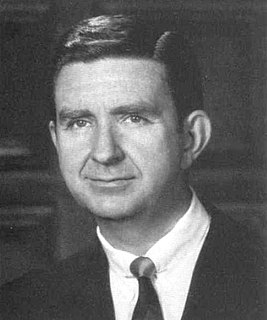A Quote by C. S. Lewis
We forgive, we mortify our resentment; a week later some chain of thought carries us back to the original offence and we discover the old resentment blazing away as if nothing had been done about it at all. We need to forgive our brother seventy times seven not only for 490 offences but for one offence.
Related Quotes
We forgive, if we are wise, not for the other person, but for ourselves. We forgive, not to erase a wrong, but to relieve the residue of the wrong that is alive within us. We forgive because it is less painful than holding on to resentment. We forgive because without it we condemn ourselves to repeating endlessly the very trauma or situation that hurt us so. We forgive because ultimately it is the smartest action to take on our own behalf. We forgive because it restores to us a sense of inner balance.
The spirit of Christianity proclaims the brotherhood of the race and the meaning of that strong word has not been left to guesswork, but made tremendously definite - the Christian must forgive his brother man all crimes he can imagine and commit, and all insults he can conceive and utter - forgive these injuries how many times? - seventy times seven - another way of saying there shall be no limit to this forgiveness. That is the spirit and the law of Christianity.
Not only our eternal salvation depends upon our willingness and capacity to forgive wrongs committed against us. Our joy and satisfaction in this life, and our true freedom, depend upon our doing so. When Christ bade us turn the other cheek, walk the second mile, give our cloak to him who takes our coat, was it to be chiefly out of consideration for the bully, the brute, the thief? Or was it to relieve the one aggrieved of the destructive burden that resentment and anger lay upon us?
When you forgive a person, what do you do? You accept the situation, to begin with. And secondly, you forgive what you think has been done wrong to you. But because nothing wrong can be done to your spirit, you just forgive because you are the spirit. And when you forgive, you have found that your tension goes away.
The pure love of Christ can remove the scales of resentment and wrath from our eyes, allowing us to see others the way our Heavenly Father sees us: as flawed and imperfect mortals who have potential and worth far beyond our capacity to imagine. Because God loves us so much, we too must love and forgive each other.
Not forgiving prolongs hurt and anger and leads to smoldering resentment, which will make us miserable until it kills us. Resentment destroys the perception of reality. As we try to bend the world to accommodate our resentment, fear, and selfishness, we become less accurate in understanding the world. This eventually destroys our ability to cope successfully with life.
You know, Sage, Jesus didn't tell us to forgive everyone. He said turn the other cheek, but only if you the one who was hit. Even the Lord's Prayer says it loud and clear: Forgive us our trespasses, as we forgive those who trespass against us. Not others. What Jesus challenges us to do is to let go of the wrong done to you personally, not the wrong done to someone else. But most Christians incorrectly assume that this means that being a good christian means forgiving all sins, and the sinners.
If we can forgive everyone, regardless of what he or she may have done, we nourish the soul and allow our whole being to feel good. To hold a grudge against anyone is like carrying the devil on your shoulders. It is our willingness to forgive and forget that casts away such a burden and brings light into our hearts, freeing us from many ill feelings against our fellow human beings.




































